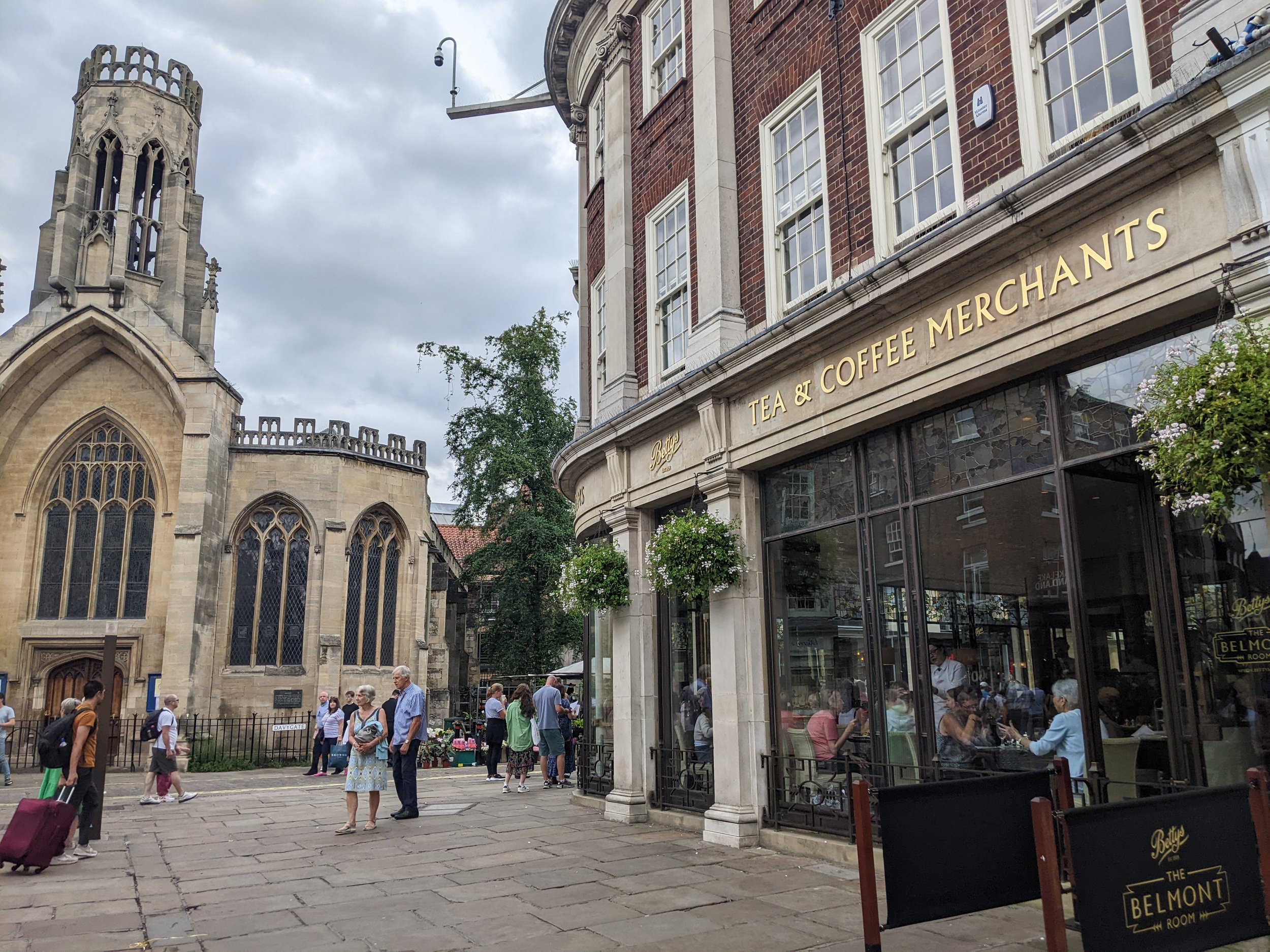Betty's Cafe Tea Rooms:
Yorkshire Tea & Colonialism
Directions to Betty’s Tea Rooms
Tea served with milk and sugar is generally viewed as something quintessentially British. It is found everywhere in the UK, consumed by members of all social classes in every corner of the country. The UK is the third-highest consumer of tea in the world per capita, collectively drinking 100 million cups daily.
A range of tea blends have been produced in the UK. The most common is “English Breakfast”, a blend of tea from northeastern India, Sri Lanka and eastern Africa. Other blends include Earl Grey (a blend of black tea leaves infused with bergamot oil), Lady Grey (the Earl Grey blend with the addition of dried lemon and orange peel), and Yorkshire tea (a version of English Breakfast designed for brewing in the hard water of Yorkshire). In recent years, other beverages from the tea tree, such as green tea, white tea and oolong, have become more popular.
Something as simple as a cup of tea has a rich and complex history. It raises numerous sociological questions. How did this drink that emerged in ancient China come to be consumed in such vast quantities in UK? How did this practice come to be associated with Britishness? How does the practice of tea-drinking intersect with class, gender, nation and empire? And why is the most common version a blend of leaves from India, Sri Lanka and East Africa, mixed with milk and sugar?
At this stop of the Sociological Imagination & the City of York Tour, we consider the history of tea at the city’s most famous tea room: Betty’s. Betty’s Tea Room first opened in York in 1937, and has been immensely popular ever since. The building was designed to replicate the feel of the RMS Queen Mary, a celebrated ship whose maiden voyage began in 1936. Betty’s is a bastion of luxurious tea-drinking, offering a decedent setting in which to sip an elegant brew. But Betty’s is also symbolic, a representation of Yorkshireness and Britishness, an emblem of culture, class and consumption.
At this point in the tour, we stop outside Betty’s to reflect on the history of tea in the UK. In particular, we consider how the quintessentially British “English Breakfast” blend is a product of the country’s colonial history.
Listen to the podcast below to learn more!
Peter Gardner is a Senior Lecturer in sociology at the University of York. He is the author of two books: Ethnic Dignity and the Ulster-Scots Movement in Northern Ireland (2020) and Symbolic Objects in Contentious Politics (2023). His primary research interests include climate protest, social movements studies, postconflict societies, symbolic objects, and the sociology of climate and ecological breakdown. In his most recent research project, he and Tiago Carvalho analyse the worldwide Extinction Rebellion movement.





